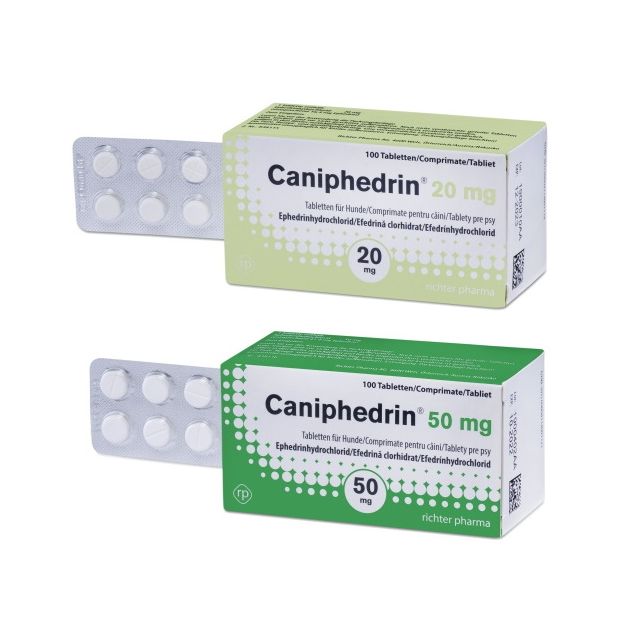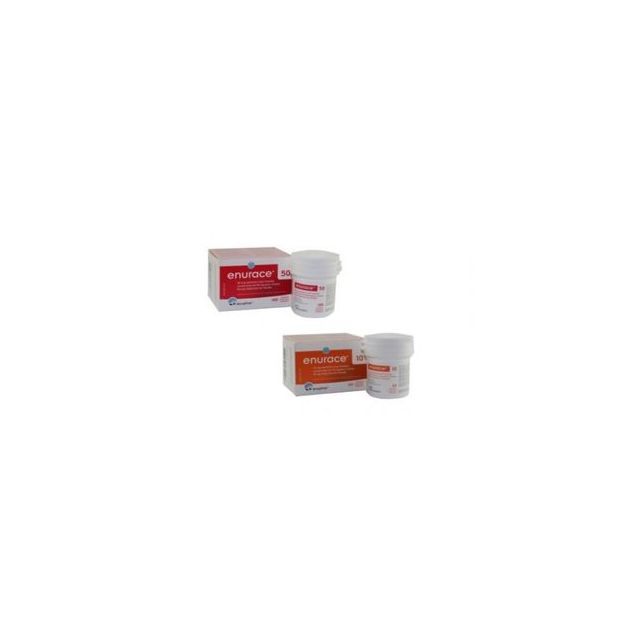Incontinence in dogs
If your dog cannot hold its urine, it is annoying for you, but also for your dog. After all, your dog has often been house-trained for years and can become very stressed if it suddenly becomes incontinent. It is important to determine the cause of the urine loss. Fortunately, incontinence is often treatable.
Types of Incontinence
Incontinence means the loss of urine in unwanted places or at unwanted times. This can happen actively or passively. With active incontinence, the dog assumes the position to urinate, whereas with passive incontinence, the dog loses urine while walking or sleeping. Then, for example, you might see a wet spot where your dog has lain. Also, in female dogs, the fur on the hind legs is often wet or discolored and smells of urine. The skin around the vulva can be irritated. Since the causes can be very different, it is important to discover whether your dog suffers from active or passive incontinence.
Causes of Active Incontinence in Dogs
With a urinary tract infection, the urge is so high that your dog simply cannot hold it and must urinate in the house if it is not taken out very often. Often it involves multiple small urinations, and you may also notice outside that your dog frequently sits down to pee small amounts. Straining to urinate and/or blood in the urine are other symptoms.
Several conditions cause your dog to not concentrate the urine properly. As a result, much more urine is produced than normal. To avoid dehydration, your dog also drinks much more. Examples of conditions that cause excessive drinking and urinating include chronic kidney disease, diabetes, and Cushing's disease. Because your dog produces so much more urine, it also needs to urinate more frequently, and the chance of accidents is much greater.
Older dogs can suffer from dementia just like humans. Besides a disrupted day and night rhythm, a known symptom is urinating and/or defecating in the house. In cases of dementia, supplements like Annibidiol can sometimes help somewhat, but often the use of incontinence materials such as special dog diapers is the only solution.
Behavioral problems or anxiety and stress can sometimes manifest as active incontinence. More often, however, there is a medical cause that must be excluded first before the urine loss is labeled as a behavioral problem. Behavioral problems or anxiety and stress are best addressed with a behavior therapist. A calming dietary supplement like Zylkène can provide support in this.
Causes of Passive Incontinence in Dogs
Young puppies are usually not house-trained when they come to their new owner. Through training, they learn to pee outside. If a puppy does not become continent or continues to have frequent accidents, it may be that a congenital problem is at play: the ureters, the tubes that carry urine from the kidney to the bladder, are incorrectly connected and do not enter the bladder but into the urethra, on the wrong side of the sphincter muscle. It makes sense that your puppy cannot hold its pee!
Especially in spayed female dogs of larger breeds, sphincter incontinence, or a poorly functioning sphincter muscle, regularly occurs, usually at a later age. Due to the loss of estrogen, the sphincter gradually becomes weaker. In certain breeds, such as the Boxer, Rottweiler, and Poodle, sphincter incontinence occurs more frequently. The chance of a dog becoming incontinent after spaying is greater if the spaying occurs before the first heat.
Sphincter incontinence also occurs in male dogs, albeit much less frequently. Prostate problems can also lead to urine loss. The enlarged prostate then presses on the urethra. Certain neurological conditions such as a herniated disc or cauda equina syndrome can also cause dogs to become incontinent.
Furthermore, inflammations, polyps, or tumors in the bladder or urethra can occur, causing passive or active urine loss.
What to Do if Your Dog is Incontinent
If your dog suddenly starts losing urine actively or passively, a urinalysis is the first step. This way, underlying causes such as a urinary tract infection or very watery urine can be identified or ruled out. Urine can be easily collected with this special collection tray.
In addition, a physical examination is usually necessary. The veterinarian checks the bladder, urethra, and prostate, examines the vulva, and conducts a neurological examination of your dog. If there is suspicion of an abnormality in the bladder, ureters, urethra, or prostate, an ultrasound or X-ray can be taken, or a cystoscopy can be performed with a small camera in the urethra and bladder. If your dog drinks and urinates a lot, the cause can be determined through a blood test.
Never punish your dog if it urinates in the house. In most cases, it really cannot help it, and even if a behavioral problem seems to be the cause, punishment is never the solution, as it will likely have the opposite effect by causing your dog even more stress.
Treating Incontinence
Of course, you and your dog want to get rid of unwanted urine loss as quickly as possible. Fortunately, in many cases, it is possible to resolve the issue with medication. Urinary tract infections are usually treated with antibiotics. There are various types of medication for sphincter incontinence. Sometimes it takes a little searching to find out which medication your dog responds best to.
If poorly concentrated urine plays a major role in your dog's incontinence, a targeted treatment will be initiated, such as a special diet for chronic kidney disease or treatment with insulin for diabetes.
If your dog has an ectopic ureter, this can be resolved through surgery or with the help of a laser by a specialized doctor. Surgical intervention or treatment with a laser is sometimes also possible for a tumor or polyp.
Unwanted urine loss is experienced as a major problem by both the pet owner and the dog. Fortunately, in many cases, there is a solution, so mopping and extra laundry become things of the past, and your dog can relax again. If you have a question about our products or about incontinence in your dog, please contact us.



